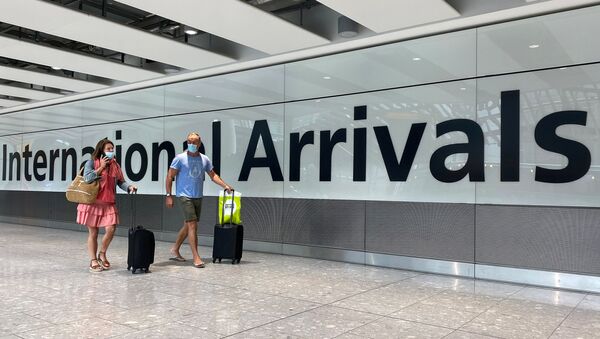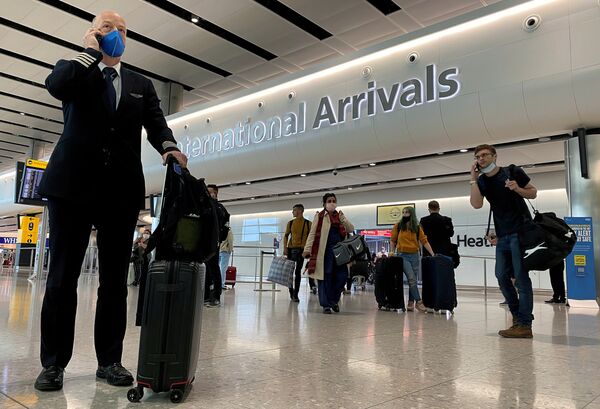"Border measures in the UK were lifted rather than extended on 13 March at a time when the number of infections being imported from abroad was still rising. Evidence suggests that thousands of new infections in the UK resulted from cases arriving from Europe in the ten days between this decision and the introduction of lockdown on 23 March. The failure to have any special border measures during this period was a serious mistake that significantly increased both the pace and the scale of the epidemic in the UK, and meant that many more people caught COVID-19", a report by the House of Commons Home Affairs Committee has found.
The investigation assessed all the decisions the government made on border measures amid the pandemic, which includes a voluntary self-isolation policy for travellers who arrived in the UK from China, Iran, Italy, and some other nations in February and early March.

According to the lawmakers, the country's experience with COVID-19 has been far worse as a result of the government's decision not to apply special border measures to people arriving from Spain and France and applying self-isolation requirement only for passengers from Italy for a limited time in March.
The report also noted that special border measures were lifted rather than extended on 13 March, when the number of imported coronavirus cases was rising.
"The Government's failure to have proper quarantine measures in place in March as the infection was spreading fast was a grave error and meant COVID spread faster and reached more people", Labour MP Yvette Cooper, who chairs the committee, said on presenting the report, as cited by a parliamentary website.
According to Cooper, who is also a former shadow home secretary, all countries need to be able to use border measures at different times to prevent the spread of the global pandemic and to save lives.
The consequences of failing to do so are very serious for both public health and the economy, she added.
The damaging report also blamed the government for a lack of clarity over which department or agency is ultimately responsible for coordinating coronavirus border policy, and recommended to investigate the viability of introducing widespread or targeted tests at the border.
There remains a concerning lack of transparency and clarity about departmental responsibilities and the information provided to ministers, which the government needs to address, the House of Commons select committee stated.
The UK's coronavirus death toll jumped to 46,299 after another 89 deaths were reported on Tuesday, and the latest government figures also show that 306,293 people have tested positive for the disease.



